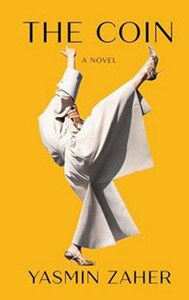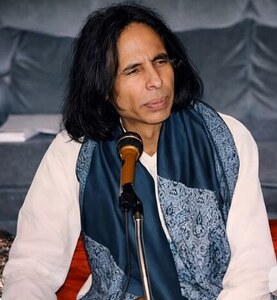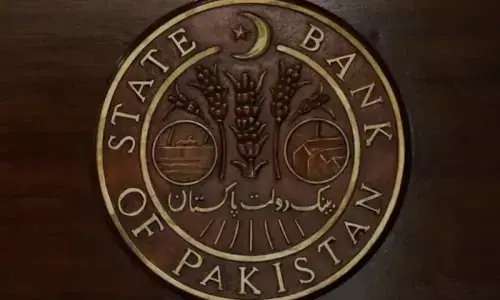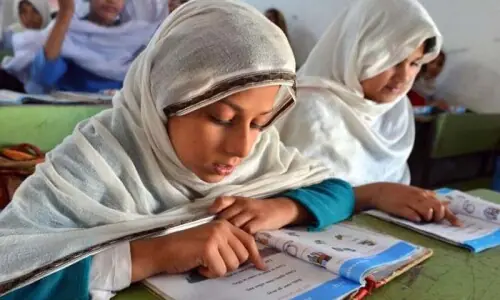
Zulfikar Ghose passed away peacefully on June 30, 2022, in Austin, Texas, at the age of 87. He had occupied a unique place in Pakistani letters as a pioneering Anglophone and diasporic writer. His work traversed the many continents in which he had lived and he drew together implicit, explicit and buried cross-cultural influences, much before ‘globalisation’ gained popular currency.
Ghose remains the only English-language writer of Pakistani origins to have published an extensive and accomplished oeuvre that includes 11 novels, six volumes of poetry, five books of critical essays, two short story collections, an autobiography and collected letters.
He wrote regularly for Books and Authors and his last column — ‘The Force of Originality’, published on May 22 — embodies the range and richness of his writing with its seamless blending of references to literature, art and contemporary events, to comment on creativity, time, life and death.
I find myself reflecting on his poem ‘A Dragonfly in the Sun’. I had used the title in 1997 for my very first anthology, because Ghose’s multilayered words on nature’s complexities also became a metaphor for the literary process, leading up to the lines:
Regular Books & Authors columnist Zulfikar Ghose, who passed away end of June, was a towering man of letters and among the earliest writers to define himself through language, writing and storytelling rather than geographical identity
This is the moment of intensity
In the afternoon’s light gathering
In the garden in a brief flickering
Of a dragonfly’s wings
Just above the red blossoms of the pomegranate
In a 2006 interview with me, Ghose compared creative writing to a spiritual quest that culminates in self-revelation. In Pakistan, his name is still synonymous with 1967’s The Murder of Aziz Khan, his only novel set in this country. But few remember that in the oppressive 1960s’ Pakistan, the book was virtually banned.
People smuggled it in their personal baggage from Britain where it had been published. The quality of its prose, its portrayal of a new breed of 1950s’ industrialists destroying a traditional farmer of Punjab, and its incisive comment on tyranny, corruption and social injustice caused a great stir.
The Murder of Aziz Khan was the first cohesive, contemporary Pakistani English novel. It was also Ghose’s only novel written in a linear, realistic narrative. For his subsequent books, he preferred newer literary forms: 1975’s Crump’s Terms, set in Britain, was stream-of-consciousness and ‘The Incredible Brazilian’ trilogy was picaresque magical realism.
For 1981’s Hulme’s Investigation into the Bogart Script, set in America, he employed the metaphysical. His 11th novel, 1992’s The Triple Mirror of the Self, combined the real and surreal to move backwards in time and traverse the continents where Ghose has lived: North and South America, Europe and Asia.
“I am very conscious of the art of the novel,” Ghose told me in 2006. “My literary ancestors go back to [Miguel de] Cervantes, [Giovanni] Boccaccio and The Arabian Nights — and also [James] Joyce, [Virginia] Woolf, [Vladimir] Nabokov [and Samuel] Beckett. I don’t see any point in writing a novel unless I am worthy of these people. My greatest passion in fiction has been [Marcel] Proust in recent years, because of the way he constructs his sentences. I like [Joseph] Conrad because I like his prose. I am not interested in ideas; in the end, it is the music of the language that matters.”
He asserted often that his only aim was to produce good literature; the emphasis was on language, structure and form. He believed all good writers were multicultural and he never sought an ‘ethnic’ literary ancestor, although he did admire India-born Raja Rao who was a good friend, as was Kashmir-born Agha Shahid Ali.
Ghose was very critical of academic discourses that assessed writers according to geography, ethnicity and other non-literary criteria. As a post-War diasporic writer, he was among the earliest to define himself through language, writing and storytelling, but many queried his ‘identity’ because of his multiple migrations and books set in different lands.
However, Ghose constantly asserted his Pakistani identity. He told me: “I would not hazard to guess how or if identity becomes clearer over the years, but it is just a sense of a place to which your soul belongs.”
This Karachi interview, to which I keep referring, took place during Ghose’s trip to Pakistan, after many years, to visit his sisters in Lahore. Another sister lived in London. There, one year, my family and I met up with him and his wife, Helena. Both were such good company that we felt we were old friends and I really enjoyed Ghose’s quiet humour. My daughter Kamila, a cricket enthusiast, recalls that “he liked chatting about cricket.” Later, in our sporadic email exchanges, he expressed great interest in Kamila’s work and of young writers such Nadeem Aslam.
Ghose came to Pakistan several times, gave talks at various universities and attended literary events organised by the Oxford University Press, Karachi, which published his collections of critical essays — Beckett’s Company and In the Ring of Pure Light: Lectures on Language and Literature — and the poetry collection 50 Poems: 30 Selected, 20 New.
He was prominent at the 2010 inaugural Karachi Literature Festival and at the 2015 Lahore Literary Festival, where he received a Lifetime Achievement Award. He took great interest in the International Centre for Pakistani Writing in English, Kinnaird College, too.
‘Zulf’ to his friends, he was born Khwaja Zulfikar Ahmed in 1935 in Sialkot, to a family of Kashmiri origins. Their surname was originally ‘Ghaus’ but, on business trips to Europe, his father, Khwaja Mohammed, discovered that the Europeans could not pronounce it, so he changed the spelling to ‘Ghose’. In 1942, Khwaja Mohammed moved the family to Bombay [Mumbai].
Young Ghose loved Bombay. He was educated at the Don Bosco School and, at the age of 14, started writing poetry. Then, Partition — and the sudden discovery that he was regarded as “an alien Muslim” — happened, coinciding with a serious illness and near-fatal kidney haemorrhage. He felt he had suffered “a symbolic death” and that “one way or another” he had always been writing about it.
In 1952, the family migrated to London and Ghose was enrolled at the Sloane Grammar School. His headmaster was a Shakespeare scholar who introduced him to the classics and encouraged him to read contemporary writers such as T.S. Eliot and Dylan Thomas.
In 1959, Ghose graduated from Keele University, where he had been active in avant garde poetry circles and had become close friends with acclaimed experimental writer B.S. Johnson. Their invaluable letters on literature, revealing their respective gestation as writers, were published as The B.S. Johnson-Zulfikar Ghose Correspondence, edited by Vanessa Guignery.
Johnson encouraged Ghose to write fiction and they co-authored the collection Statement Against Corpses. This appeared in 1964, the same year as Ghose’s first poetry collection The Loss of India. A year later came Ghose’s autobiography, Confessions of a Native Alien. Each was the first contemporary work in Pakistani English literature in its specific genre.
In Pakistan, Ghose’s poems appeared in the anthologies First Voices: Six Poets from Pakistan — Ahmed Ali, Zulfikar Ghose, Shahid Hosain, Riaz Qadir, Taufiq Rafat, Shahid Suhrawardy, edited by Shahid Hosain. Then came Pieces of Eight: Eight Poets from Pakistan, edited by Yunus Said. In Britain, Ghose published two more poetry collections and co-authored the prestigious Penguin Modern Poets 25: Gavin Ewart, Zulfikar Ghose, B.S. Johnson.
In 1961/62, Ghose worked as a cricket correspondent and was sent by The Observer newspaper to cover the Marylebone Cricket Club (MCC) tour of Pakistan. This was his first “return trip” and, while he felt very much at home in Pakistan, he could not reconcile himself to its military rule. The concept of “a paradise lost” to tyranny and injustice led to his writing The Murder of Aziz Khan. The book’s themes of alienation, dispossession and quest permeate Ghose’s work and critics often describe ‘The Brazilian Trilogy’ as a reworking of The Murder of Aziz Khan on a grander scale.
In 1964, Ghose and Brazil-born artist Helena de la Fontaine married in London. Five years later, they relocated to the United States where he began teaching English at the University of Texas, Austin. De la Fontaine’s art and Ghose’s creative writing shared an “unconscious common influence”, a “buried connection” through “imagistic detail” evoked by their conversations or travels, particularly to archaeological sites, as he told me during an interview in 2001.
Meanwhile, Ghose’s friendship with the American novelist Thomas Berger led to a 20-year correspondence, which is now preserved in the University of Texas archives. Berger’s picaresque 1964 novel Little Big Man — made into a brilliant film starring Dustin Hoffman — suggested the structure of Ghose’s Brazilian trilogy.
Ghose made his first trip to Brazil in 1966; landing in Rio de Janeiro was like “arriving in a Bombay of 20 years earlier.” His discovery of an anthropological account of 18th-century Brazil led to the concept of his trilogy — The Incredible Brazilian, The Beautiful Empire and A Different World — which recreates the country’s history through its 400-year-old narrator. The story has clear Subcontinental resonances, as do Ghose’s later novels set in South America.
However, the South Asia-South America link was made explicit only in The Triple Mirror of the Self. This tale of exile and migration across four continents is framed by mirror images of the Andes and the Hindu Kush mountains, and is imbued with mystical themes. Interestingly, Ghose’s story collection Veronica and the Gongora Passion includes the tale ‘Arrival in India’, which is set in 1492. In it, passengers sail with Christopher Columbus to India, but find themselves stranded in South America.
Major critical works on Ghose include Structures of Negation: The Writings of Zulfikar Ghose by Chelva Kanaganayakam, Zulfikar Ghose: The Lost Son of the Punjab by Mansoor Abbasi and The Journal of Contemporary Fiction: Zulfikar Ghose and Milan Kundera.
As seen from his own works, to books written about him, it is clear that Zulfikar Ghose’s contribution to literature has been enormous. He will be deeply mourned.
The writer is the author of Hybrid Tapestries: The Development of Pakistani Literature in English
Published in Dawn, Books & Authors, July 17th, 2022

































